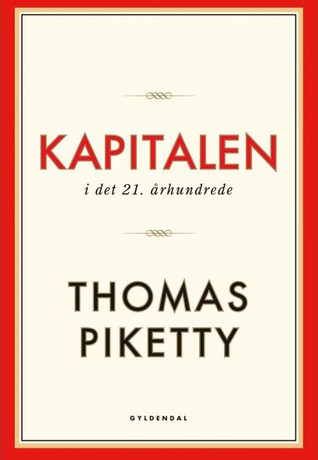
Thomas Pikettys bog «Kapitalen i det 21. århundrede» handler om økonomi, kapitalisme, ulighed, meritokrati og demokrati.
Med «Kapitalen i det 21. århundrede» har Thomas Piketty sat en ny standard for, hvordan vi taler om økonomi og om økonomisk ulighed, lokalt og globalt. Han har skrevet en bog, der viser, hvordan stigende økonomisk ulighed underminerer de forventninger om meritokrati og demokrati, vi har bygget vores samfund på. Pikettys bog er uomgængelig som en indgang til at forstå nutidens og fremtidens kapitalisme.
Eller som den amerikanske økonom og nobelprisvinder Paul Krugman har formuleret det:
”Man kan roligt regne med, at Kapitalen i det 21. århundrede, den franske økonom Thomas Pikettys store værk, vil blive årets vigtigste bog om økonomi – og muligvis årtiets vigtigste. Piketty, nok verdens førende ekspert i indkomst- og velstandsulighed, dokumenterer ikke alene den stigende koncentration af indtægt i hænderne på en lille økonomisk elite. Han argumenterer også overbevisende for, at vi er på vej tilbage til en ’patrimonial kapitalisme’, hvor den herskende top af økonomien er domineret af ikke bare velstand men også af arvet velstand, hvor fødsel har mere at skulle have sagt end bestræbelse og talent.”
Hvorfor peker de økonomiske pilene nedover i Norge? I 2013 hadde vi den beste kombinasjonen av velstand, helse og lykke i verden. Så ble vekst . . .
Scandinavian countries have been praised for their high levels of welfare provision and their economic and social outcomes. It is true that they are successful . . .
From world-renowned economist Paul Collier, a candid diagnosis of the failures of capitalism and a pragmatic and realistic vision for how we can repair it. . . .
Dette er en veldig oppklarende bok og det er ikke vanskelig å se for seg at andre som snakker fornuftig om økonomi, geografi, historie og . . .
Thing 1: There is no such thing as free market.Thing 4: The washing machine has changed the world more than the Internet.Thing 5: Assume the . . .
Brilliant and engagingly written, Why Nations Fail answers the question that has stumped the experts for centuries: Why are some nations rich and others poor, . . .
“If [ The End of Alchemy ] gets the attention it deserves, it might just save the world.” ―Michael Lewis, Bloomberg View Something is wrong . . .
In this highly readable and thought-provoking work, Nick Dyer-Witheford assesses the relevance of Marxism in our time and demonstrates how the information age, far from . . .
We are well aware of the rise of the 1% as the rapid growth of economic inequality has put the majority of the world’s wealth . . .